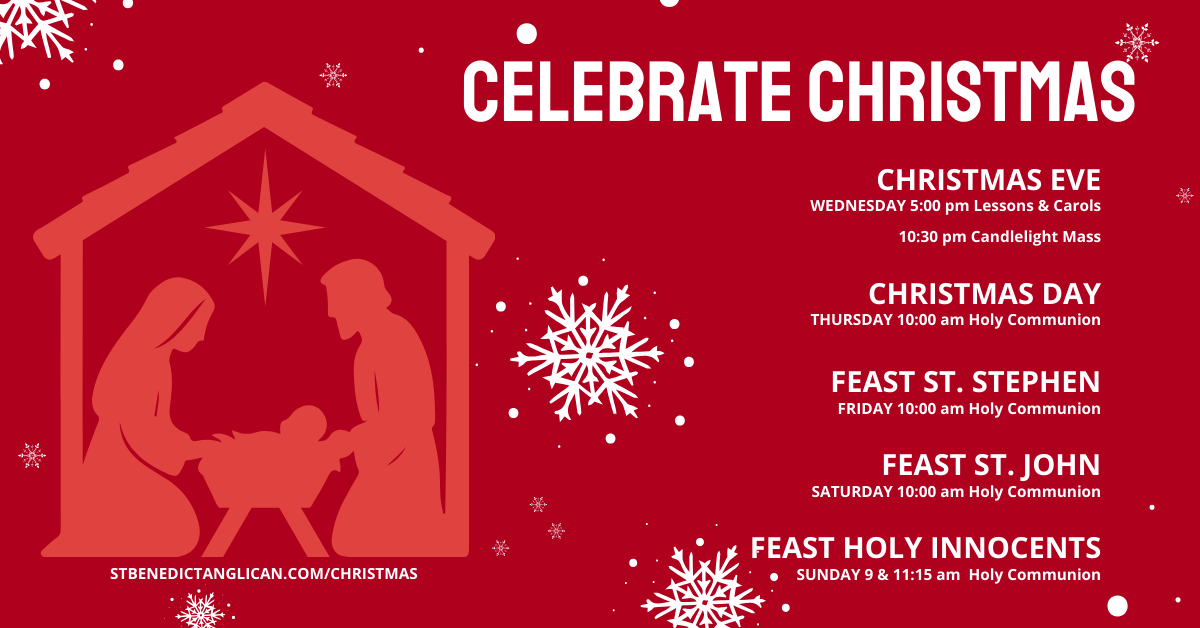
Learn About
The Festival of Christmas was observed at a very early period in the Church, as indeed it could hardly but be; for that which brought the joy of angels within reach of men’s ears, could not but have been devoutly and joyously remembered by Christians, year by year, when they came fully to understand the greatness of the event. St. Chrysostom, in a Christmas homily, speaks of the festival as being even then, in the fourth century, one of great antiquity; and, in an Epistle, mentions that Julius I. [a.d. 337–352] had caused strict inquiry to be made, and had confirmed the observance of it on December 25th. There are sermons extant which were preached upon this day by Gregory Nazianzen and St. Basil, in the same century. It is spoken of by Clemens Alexandrinus, who died in the beginning of the third century, a little more than a hundred years after the death of St. John; and it was on a Christmas Day, we are told, that a whole church full of martyrs was burnt by Maximin in Nicomedia.
Christmas
In the primitive age of the Church this Festival was more closely associated with the Epiphany than it has been in later times. The actual Nativity of Christ was considered as His first Manifestation, and the name “Theophania” was sometimes given to the day on which it was commemorated, as well as to the twelfth day afterwards, when the end of the Christmas Festival is celebrated with other memorials of the appearance of God among men. Most of the fathers have left sermons which were preached on Christmas Day, or during the continuance of the festival; and secular decrees of the Christian Emperors, as well as Canons of the Church, shew that it was very strictly observed as a time of rest from labour, of Divine worship, and of Christian hilarity.
The ancient Church of England welcomed Christmas Day with a special service on the Vigil, a celebration of the Holy Communion soon after midnight, another at early dawn, and a third at the usual hour of the midday mass. The first two of these services were omitted from the Prayer Book of 1549, and the third from that of 1552. But an early Communion, as well as the usual midday one, has always been celebrated in some of the greater churches on Christmas Day, and custom has revived the midnight celebration also, in addition to the ordinary Evensong of Christmas Eve. The midnight celebration commemorates the actual Birth of our Lord; the early morning one its revelation to mankind in the persons of the shepherds; that at midday the Eternal Sonship of the Holy Child Jesus.
The Twelve Days of Christmas
“On the Twelfth day of Christmas, my true love gave to me…”
Wait, there are TWELVE Days? I thought Christmas ended at 9 am on the 25th of December? Christmas is actually a season that lasts until the Epiphany, January 6th. On Christmas morning, the party has just gotten started! But many people wonder what happens for the rest of the 12 days.

